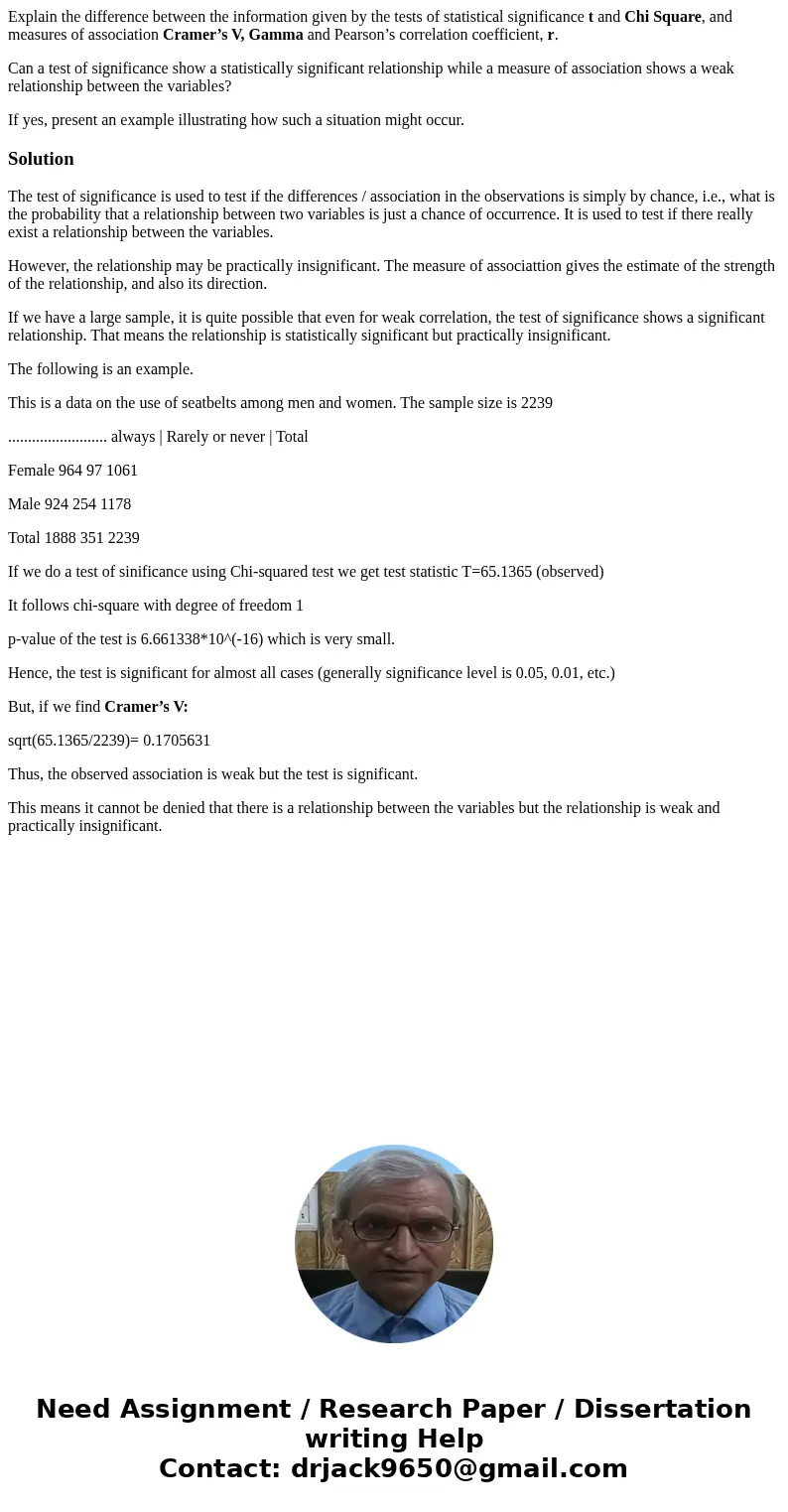Explain the difference between the information given by the
Explain the difference between the information given by the tests of statistical significance t and Chi Square, and measures of association Cramer’s V, Gamma and Pearson’s correlation coefficient, r.
Can a test of significance show a statistically significant relationship while a measure of association shows a weak relationship between the variables?
If yes, present an example illustrating how such a situation might occur.
Solution
The test of significance is used to test if the differences / association in the observations is simply by chance, i.e., what is the probability that a relationship between two variables is just a chance of occurrence. It is used to test if there really exist a relationship between the variables.
However, the relationship may be practically insignificant. The measure of associattion gives the estimate of the strength of the relationship, and also its direction.
If we have a large sample, it is quite possible that even for weak correlation, the test of significance shows a significant relationship. That means the relationship is statistically significant but practically insignificant.
The following is an example.
This is a data on the use of seatbelts among men and women. The sample size is 2239
......................... always | Rarely or never | Total
Female 964 97 1061
Male 924 254 1178
Total 1888 351 2239
If we do a test of sinificance using Chi-squared test we get test statistic T=65.1365 (observed)
It follows chi-square with degree of freedom 1
p-value of the test is 6.661338*10^(-16) which is very small.
Hence, the test is significant for almost all cases (generally significance level is 0.05, 0.01, etc.)
But, if we find Cramer’s V:
sqrt(65.1365/2239)= 0.1705631
Thus, the observed association is weak but the test is significant.
This means it cannot be denied that there is a relationship between the variables but the relationship is weak and practically insignificant.

 Homework Sourse
Homework Sourse